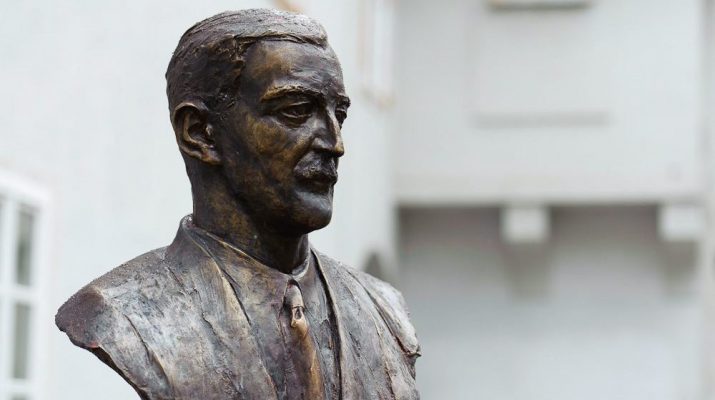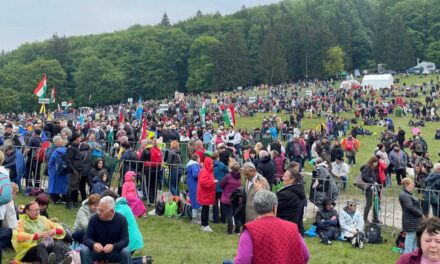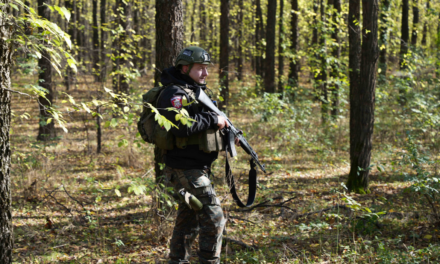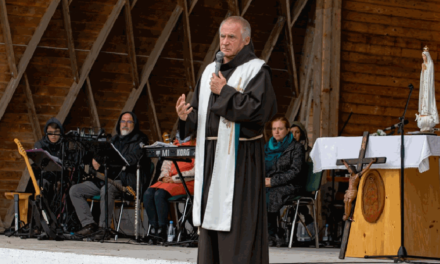János Esterházy, the former political leader of the Hungarians in Slovakia, was remembered on Saturday in the Czech capital. The now traditional commemoration, which was held at the memorial site for the victims of the communist regime in the Motol public cemetery, was organized by the Prague-based János Esterházy Association for Christian and Human Values, the János Esterházy Memorial Committee of the political movement Coexistentia, and the Hungarian Catholic Parish in Prague, organized by the tragically deceased politician. on the 66th anniversary of his death.
Representatives of Hungarian social organizations in the Czech Republic and the Hungarian Embassy in Prague laid wreaths and flowers at the memorial plaque of János Esterházy. Representatives of the Slovakian NGO Association for Common Goals also laid a wreath at the memorial site.
The speeches given at the memorial ceremony unanimously praised the life and work of János Esterházy. Panni Szakács, the new president of the János Esterházy Society, opened the ceremony by reciting a poem by Albert Wass, while László Gubík, the president of the Slovak Association for Common Goals, reminded the participants, among other things, that
the recently deceased Miklós Duray was the main representative of the interests of the Hungarians in Czechoslovakia in the socialist system. His memory, like that of János Esterházy, must also be preserved - underlined László Gubík.
At the end of the commemoration, the few dozen participants sang the Hungarian national anthem together.
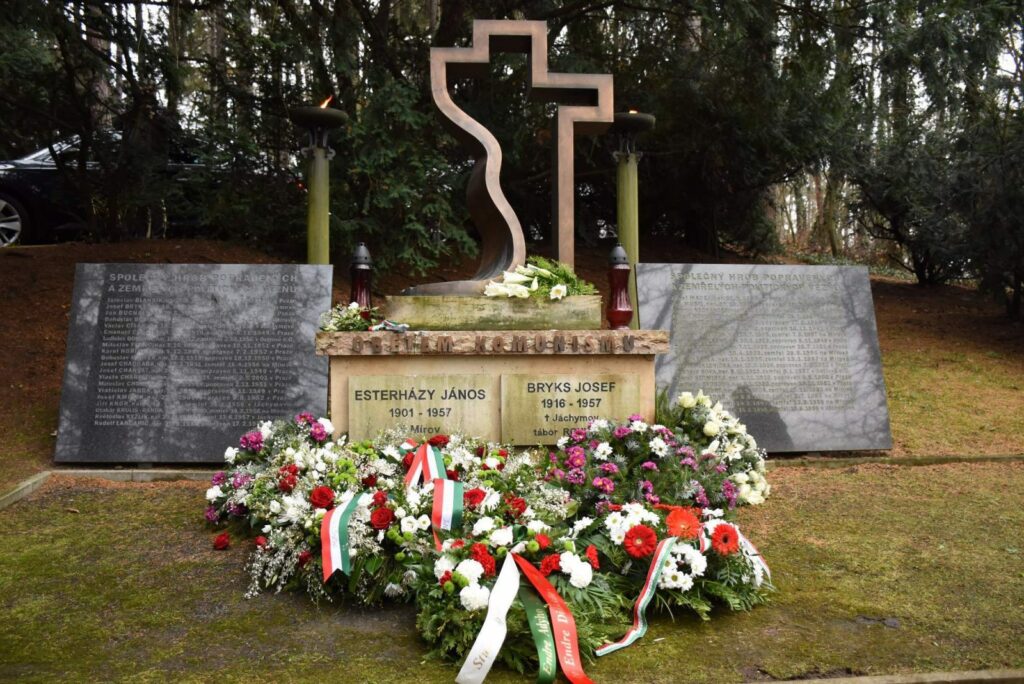
Photo: János Esterházy Association for Human and Christian Values
The memorial site was created by the Czech Confederation of Political Prisoners after the regime change in 1989 in the part of the Motol cemetery where dozens of victims of the former political regime were buried anonymously in the 1960s. The urn of János Esterházy, who was born in 1901 and died in Mírov Castle Prison in Moravia in 1957, was placed in the then unnamed mass grave in the early 1960s.
The central monument in Motol, remodeled more than a decade ago, contains the names of two victims: former war pilot Josef Bryx, who died in labor camps, and János Esterházy, the former leader of the Hungarians in Slovakia, who represents political prisoners who died in communist prisons.
Esterházy's view of life was organized around two concepts: Christ and Hungarianness. Every Hungarian should know this as his testament!
Civils Info: "Even in the midst of Christ's sufferings, Esterházy testified that our ancestors of different mother tongues had to fight shoulder to shoulder for a thousand years in the Carpathian basin so that they did not lose their evangelical faith and identity. In our global world, the future of not a minority but entire nations depends on what he said about survival. Today, a global epidemic is ravaging, which wants to eliminate national affiliation and the Christian faith. For the count, Christianity was not an election slogan - as it was for many of his contemporaries - but a profound religious conviction. With God for the Hungarian future! He knew well, "every nation will perish that despises God and does not seek to achieve its goals through God," he said in 1932. This is now being confirmed in a universal sense. The count believed that Providence called him here, to this people, to which he owes loyalty. He announced that it won't work without cooperation." (Felvidek.ma)
Source: Magyar Nemzet/Felvidek.ma
Featured image: Public map

